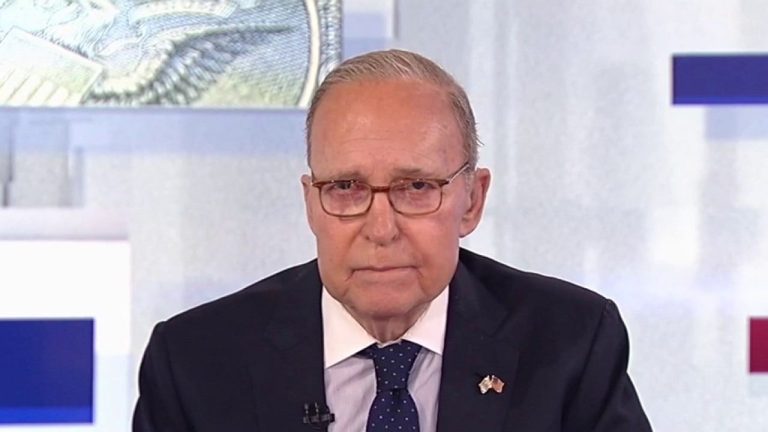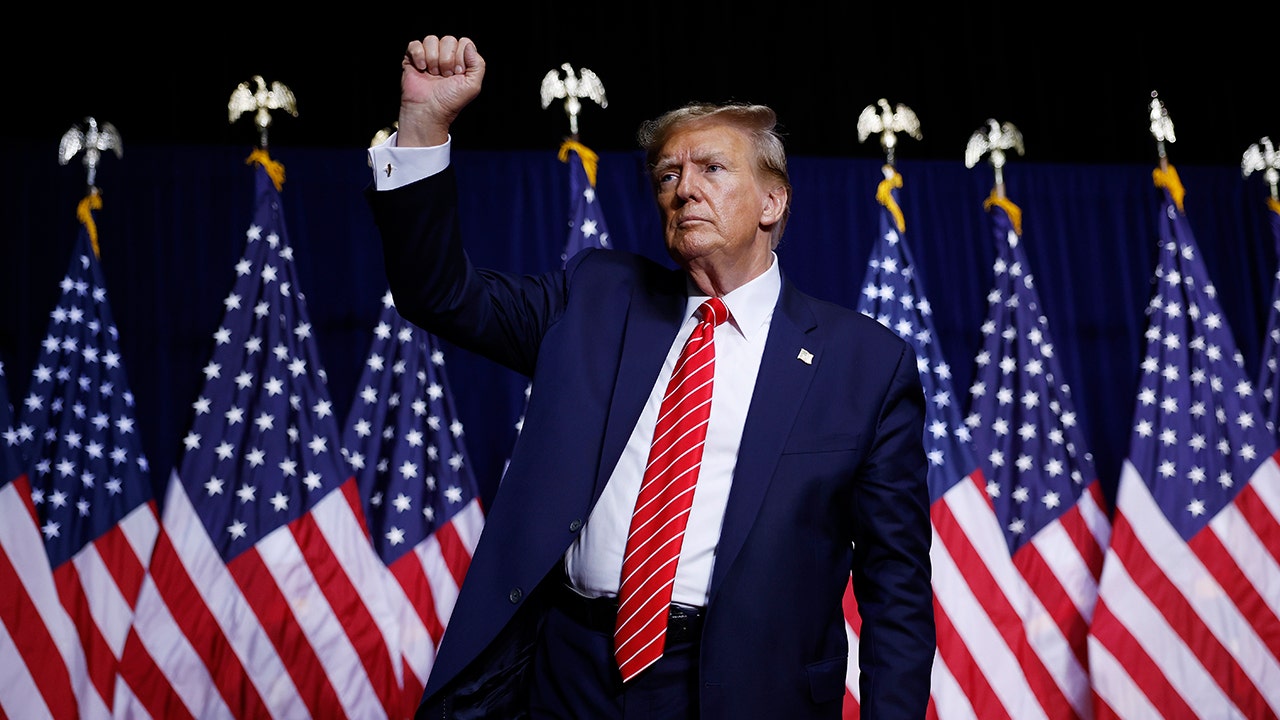
The Claman Countdown panelists Keith Fitz-Gerald and David Kudla unpack the pressure of tariffs.
President Donald Trump has spent his first few weeks in office rolling out his trade agenda, which has thus far focused on increasing tariffs. Part of that strategy is Trump’s belief that tariffs will help reduce trade deficits.
After his initial announcement of 25% tariffs on Mexico and Canada, Trump said the countries “have to balance out their trade” with the U.S. for him to consider not implementing those tariffs, which are currently delayed until at least March after the two countries announced border security measures.
“We have deficits with almost every country – not every country, but almost – and we’re going to change it,” the president added about America’s broader trade deficit. Trump has also announced higher tariffs on products imported from China and is planning to impose reciprocal tariffs on foreign trading partners after a review that’s expected to conclude by April 1.
In 2024, the U.S. trade deficit in goods grew by 14% in 2024 to reach a record of $1.2 trillion, while America’s trade surplus in services grew 5.4% to $293 billion – leading to a net trade deficit for goods and services of $918 billion last year, up $133 billion from the prior year. With the trade deficit growing and the president aiming to narrow it, FOX Business spoke with expert economists about whether trade deficits are a problem that tariffs can fix.
US TRADE DEFICIT HITS RECORD THAT WILL BE A TRUMP TARGET
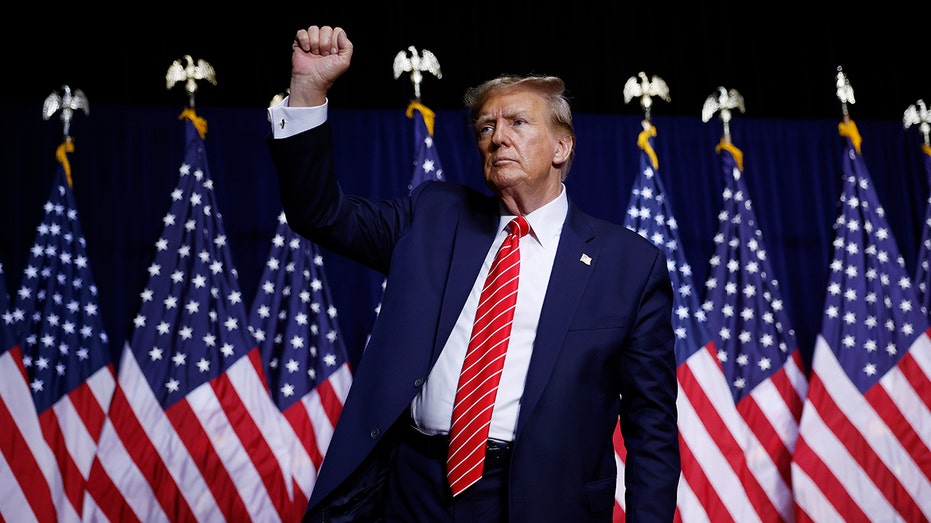
President Donald Trump has taken issue with U.S. trade deficits with other countries and touted tariffs as a way to narrow them. (Chip Somodevilla/Getty Images / Getty Images)
Ryan Young, senior economist at the Competitive Enterprise Institute, told FOX Business that people buying goods and services from overseas is because they “value what they get more than the money they give up.”
He added that trade balances don’t “say anything about a country’s economic health, good or bad, it just means a lot of people are making beneficial decisions,” while noting that the U.S. has run trade deficits for more than 50 years.
“The U.S. has run a trade deficit every year since the 1970s, yet living standards are better by almost every measure, whether it’s income, unemployment rate, life expectancy, percentage of low-income households with air-conditioning, internet and other goods, or nearly any other measure. If the trade deficit were harmful, much of what we see all around us every day should not exist,” Young said. “Trump gives a lot of reasons for his tariffs. Trade deficits should not be one of them.”
TRUMP SIGNS RECIPROCAL TARIFF PLAN: ECONOMISTS WEIGH IN ON HOW IT COULD WORK
Scott Lincicome, VP of general economics at the Cato Institute, told FOX Business that Trump’s first term tariffs on China can serve as an example of how they impact bilateral trade between the two countries as well as the overall trade deficit.
“Trump imposed a ton of tariffs on steel and aluminum and on Chinese goods – and the U.S.-China bilateral trade balance did shrink a bit. But the overall U.S. trade deficit didn’t change, as a share of GDP it was basically flat,” Lincicome said, noting that trade deficits with countries like Vietnam grew as the China trade deficit decreased.
President Trump has touted the U.S. dollar’s role as the world’s reserve currency and recently threatened tariffs on countries in the BRICS alliance if they attempt to end that role. However, the dollar’s status also contributes to the trade deficit.
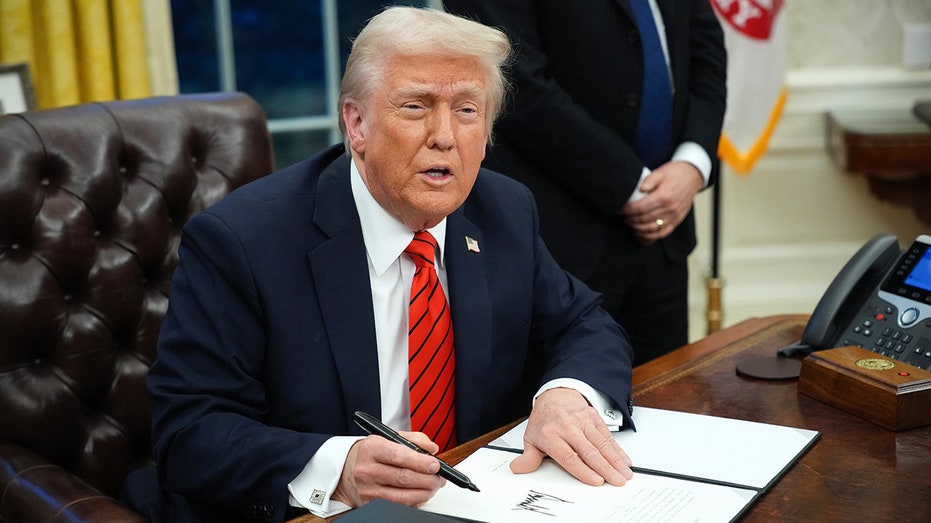
President Donald Trump has signed several executive orders related to trade and tariffs since returning to the White House. (Andrew Harnik/Getty Images / Getty Images)
TARIFFS COULD FACTOR INTO FED’S RATE-CUT PLANS AMID INFLATION CONCERNS, EXPERTS SAY
“The United States can run large trade deficits for a somewhat unique reason, and that is the dollar’s role as the world’s reserve currency,” Lincicome said. “Because the dollar is in demand abroad, that actually increases the dollar’s value… generally, a stronger dollar increases imports and decreases exports.
“So in that case, the trade deficit itself is a symptom of a good thing for the U.S. economy and something Trump likes,” he added.
Steven Kamin, a senior fellow at the American Enterprise Institute who specializes in macroeconomics and international finance, told FOX Business that deploying tariffs as a means of bringing back manufacturing jobs is unlikely to lead to a significant number of jobs being reshored.
“A lot of the destruction of manufacturing jobs was caused by technological change, not by import competition,” Kamin said. “A lot of that basically hemorrhage of manufacturing jobs to very low cost countries like China, like Mexico, was kind of inevitable. We were never going to keep those jobs, and more importantly, imposing tariffs at this point will bring some, but not very many jobs.”
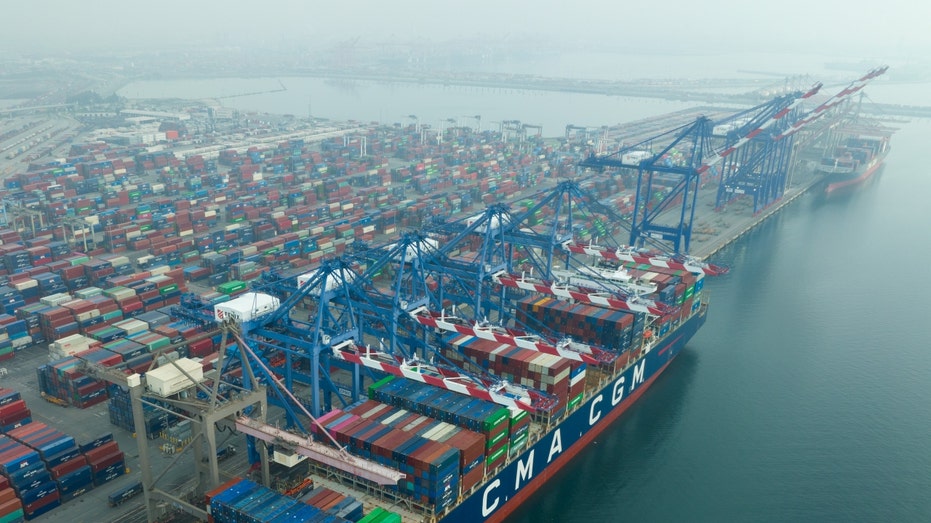
The U.S. has run trade deficits since the 1970s. ((Photo by Qian Weizhong/VCG via Getty Images) / Getty Images)
ECONOMIST OFFERS BIPARTISAN PLAN TO AVOID FINANCIAL CRISIS BY STABILIZING AMERICA’S SURGING NATIONAL DEBT
Kamin also noted that the federal government’s fiscal budget deficit plays a role in contributing to the U.S. trade deficit.
“If you look at the private sector of the United States – households and businesses – they actually earn more than they spend on consumption and investment. So basically, on the whole, our private sector is running a small surplus. It’s the government that’s running a big deficit,” Kamin said. “So if you were serious about reducing the trade deficit, you would reduce the fiscal deficit.”
GET FOX BUSINESS ON THE GO BY CLICKING HERE
“The trade deficit does not matter, the fiscal deficit does matter. The reason for that is because the fiscal deficits lead to higher government debt,” Kamin said. “As that debt grows, it competes with the private sector for borrowing funds and pushes up interest rates. And if that debt grows large enough, interest rates could go sky high – and this is something way far in the future – could lead to a financial crisis.”




